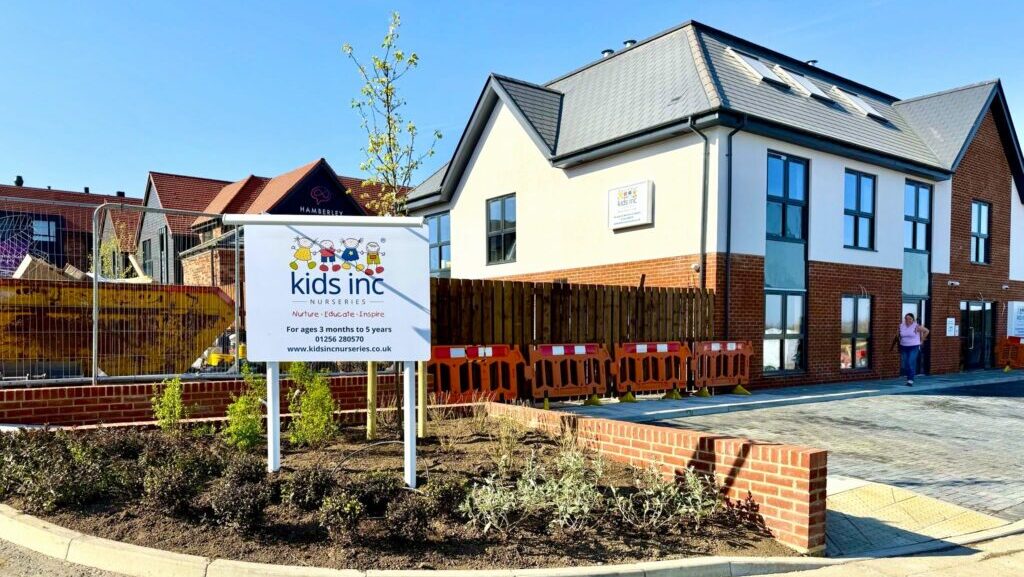The local government ombudsman has told Bournemouth, Christchurch and Poole Council to reimburse a parent who complained a nursery was…
PM sets school-readiness goal as part of plan for change

The Prime Minister has committed to increasing the proportion of five-year-olds reaching a good level of development to 75% by 2028.
“The best start in life for every child” is one of six “key milestones” set out by Keir Starmer in a “plan for change” speech delivered at Pinewood Studios in Buckinghamshire.
The government said it would measure progress in ensuring children were given the best start in life by ensuring 75% of five-year-olds reach a good level of development in the Early Years Foundation Stage assessment at the end of Reception year.
This is an increase from 67.7% currently, and would mean an additional 40,000 to 45,000 children a year hitting developmental goals.
“It is a scandal, an affront to the British value of equal respect, if we do not give every child, whatever their background, a fair chance to succeed.,” said Starmer. He added: “One in three children are not ready for school at the age of five, kids in reception, who aren’t starting to read, they’re struggling to speak.”
The government plans to bring more experts into Whitehall to help deliver its Plan for Change, drawing on the expertise of leaders in their field to drive tangible progress on the missions. Leading figures from business, charities and the public sector will be invited to join the government’s mission boards, charged with delivering the Plan for Change in partnership with government.
The government said that to meet its goal of setting every child up for life it would:
- Roll out government-funded childcare support to improve access, delivering the expansion to 30 funded hours and supporting 3,000 new and expanded school-based nurseries, increasing the availability of high-quality childcare places where they are needed most.
- Work in partnership with the sector, reforming training and support for the workforce to drive up standards. It said it would work towards a stronger early years system, beginning with offering sustained professional development and working with providers to help spread evidence-based programmes as part of comprehensive plans to drive high-quality early education and care.
- Strengthen and join up family services to improve support through pregnancy and early childhood. This includes continuing to invest in and build up Family Hubs and Start for Life programmes to support early child health, parenting and home learning programmes, and strengthening health visiting services for all families, and improved early identification of special educational needs and disabilities (SEND).
Earlier this week Early Years Alliance chief executive Neil Leitch represented the early years sector at a roundtable with the Prime Minister on the Plan for Change. “It is undoubtedly positive that the Prime Minister has identified early education as key to the government’s opportunity mission, and we look forward to working with ministers in this important area,” he said.
He added: “Of course, if we are going to give all children, regardless of background, the best possible start in life – and support them to succeed not just at school, but beyond – we simply must be willing to invest what is needed to deliver consistent quality provision, and attract and retain the knowledgeable, experienced and passionate early educators that we know make such a difference to child’s early learning experiences. As such, it remains critical that ministers ensure that our sector is adequately funded both now and in the future, particularly in light of the changes announced at the Budget and the financial pressure that they will undoubtedly place on providers.”
Purnima Tanuku, chief executive of National Day Nurseries Association (NDNA) welcomed the “joined-up, holistic approach” to early childhood, but called for the first five years to be seen as an important development stage in its own right, rather than a springboard for school.
“In order for early years professionals to continue doing the amazing work they carry out each day, the Government really needs to step up to support the nursery sector to cope with the additional costs they are imposing on employers from April,” she added. “The Employer National Insurance Contributions and uplifted statutory wages will add around 11% to their salary bill. This will seriously challenge providers’ sustainability at a time when they are gearing up for a huge expansion of funded hours in September 2025. This does not bode well for all children getting the best start in life.”
June O’Sullivan, chief executive of London Early Years Foundation (LEYF), said: “At LEYF, we see firsthand the vital role Early Years professionals play in shaping children’s futures. A skilled and stable workforce has a transformative impact on children’s language, communication, and social skills, especially when delivered through a social enterprise model like ours. To meet this standard universally, we are eager to work with the government to prioritise investments in early years education and care as part of their Plan for Change – tackling workforce shortages, improving access in underserved areas, and providing targeted funding for vulnerable children.”
Latest News
Kids Inc Nurseries is opening a purpose-built, carbon-neutral nursery in Basingstoke this month.
SADCO Nursery Group has acquired its third setting in a deal facilitated by specialist business property adviser Christie & Co.




